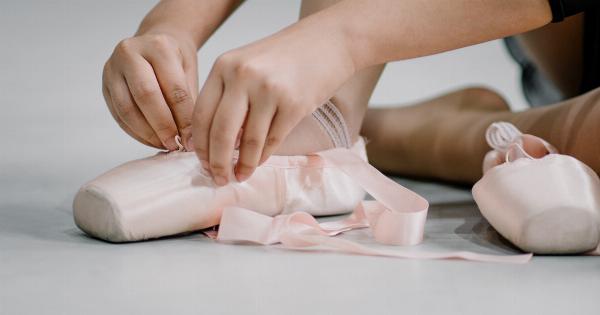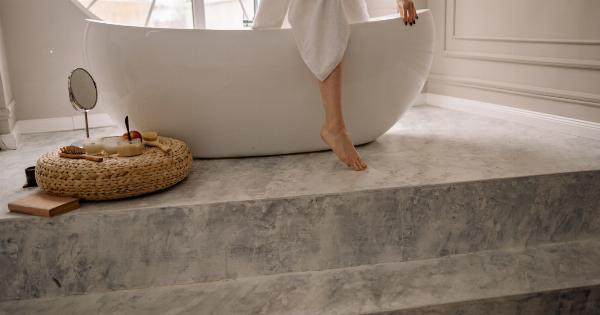Bad shoes are more than just a fashion faux pas. They can have serious consequences for your health and mobility.
Many people underestimate the importance of proper footwear, but the wrong shoes can lead to foot pain, alignment issues, and even long-term damage to your joints. In this article, we will discuss the various ways in which bad shoes can affect your health and mobility, and why it is crucial to invest in supportive and well-fitting footwear.
1. Foot Pain and Discomfort
One of the most immediate effects of wearing bad shoes is foot pain and discomfort. Ill-fitting shoes, shoes with too high or too low heels, or shoes with improper arch support can all contribute to foot pain.
Conditions such as bunions, plantar fasciitis, and corns can also be exacerbated or caused by wearing shoes that do not provide proper support or cushioning.
2. Impact on Posture
Wearing shoes that do not support proper alignment can have a significant impact on your posture. When your shoe does not provide adequate support to the arches of your feet, your body compensates by adjusting your posture.
This adjustment can lead to a range of issues such as lower back pain, hunched shoulders, and an increased risk of developing conditions like scoliosis.
3. Joint Problems
Bad shoes can also contribute to long-term joint problems. When the shoes do not provide sufficient cushioning, the joints in your feet, ankles, knees, and hips have to bear excessive pressure with each step.
Over time, this can result in joint inflammation, arthritis, and even stress fractures. It is particularly important to wear supportive shoes if you engage in activities that involve high impact or repetitive motions, such as running or jumping.
4. Ankle Instability
Poorly designed or ill-fitting shoes can lead to ankle instability. Shoes that do not provide adequate support or have a narrow base can put your ankles at risk of turning or rolling.
This can result in ankle sprains or even more severe injuries, particularly if you are participating in sports or activities that require quick movements or changes in direction.
5. Reduced Mobility and Balance
Wearing bad shoes can also impair your overall mobility and balance. Shoes that do not fit properly or have a lack of grip can make it difficult to walk or run comfortably.
In addition, shoes that are too tight or too loose can affect your ability to navigate different terrains, stairs, or uneven surfaces effectively. Reduced mobility and balance not only affect your physical wellbeing but can also increase the risk of falls and injuries.
6. Formation of Calluses and Corns
Ill-fitting shoes can lead to the formation of calluses and corns. When your shoes are too tight or rub against certain areas of your feet, the friction can cause thickened areas of skin to develop.
These calluses and corns can be unsightly and painful, making it uncomfortable to walk or wear certain types of shoes.
7. Impact on Circulation
Wearing shoes that are too tight or narrow can negatively affect blood circulation in your feet and legs. Restricting blood flow can lead to various complications, including numbness, swelling, and even the formation of blood clots.
Properly fitted shoes that allow for sufficient blood circulation are essential for maintaining foot and leg health.
8. Increased Risk of Falls and Injuries
Wearing poorly designed shoes can increase the risk of falls and injuries. Shoes that have worn-out soles, lack proper traction, or have unstable heels can make it easy to slip or trip, especially in wet or slippery conditions.
Falls can result in fractures, sprains, or other injuries, which can further decrease mobility and overall wellbeing.
9. Negative Impact on Biomechanics
Biomechanics refers to the body’s movement and the forces applied to it. Wearing bad shoes can disrupt the natural biomechanics of your feet and lower limbs.
This can cause issues such as overpronation (excessive inward roll of the foot), supination (outward roll of the foot), and abnormal gait patterns. Over time, these biomechanical issues can lead to chronic pain and degenerative conditions.
10. Psychological Effects
Lastly, bad shoes can also have psychological effects. Constant foot pain or discomfort can negatively impact your mood, confidence, and overall happiness. Chronic pain can lead to decreased motivation to engage in physical activities or even socialize.
By investing in well-fitting and supportive shoes, you can improve your physical comfort and overall mental wellbeing.
Conclusion
It is crucial to prioritize the health and mobility of your feet by choosing the right footwear. Bad shoes can have a significant impact on your overall wellbeing and may lead to foot pain, joint problems, posture issues, and reduced mobility.
Remember to select shoes that provide proper support, cushioning, and a comfortable fit. Taking care of your feet today will pay off in the long run.





























